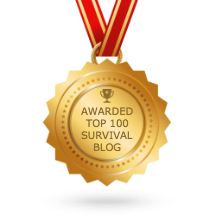Whatever your reason for electing to educate your kindergarten-aged child in the home, it is essential that you learn a few strategies on how to make the most of your school year. The ABC's, the core curriculum and even time management are all important aspects of the homeschool environment for school-aged children. But let's begin with the importance of kindergarten..
The Importance of Kindergarten
Before delving into the core curriculum requirements and skills that a homeschool kindergarten student should be introduced to, we feel it is critical to express the importance of kindergarten. In 2010, an economist from Harvard named Raj Chetty conducted a study alongside five other individuals. They followed the life paths of approximately 12,000 individuals that were part of an educational-based experiment in the 1980's in the State of Tennessee. In this research, he discovered that the individuals that learned a high amount of skills in the kindergarten classroom were most likely to pursue a college education, less likely to become single parents, more likely to save money more effectively and were earning more money annually than those that were not successful in kindergarten or did not attend kindergarten. According to the research surrounding this study, it was concluded that an effective eduction in the early years of a child's academic life has the potential to establish skills that may be used all through the child's life for their greater good.
Homeschool Kindergarten Curriculum
Based on the report of the organization known as the "National Research Council and Institute on Medicine" called "Neurons to Neighborhoods", it has been established that early educational programs - such as kindergarten - should enhance not only the linguistic competence and cognitive competence of children, but it should also enhance the emotional development and the social development of children. However, the academic reforms that were started in the year 2002 under President George Bush pushed to endorse the fact that by the time a child starts a kindergarten curriculum, they should know their letters and their numbers. Additionally, they should also possess an exceptionally high vocabulary. The organization known as the "National Council of Teachers of Mathematics" states that children should have an exceptionally high amount of knowledge in basic mathematics when starting kindergarten.
As a parent interested in designing a homeschool kindergarten curriculum, it may prove to be exceptionally challenging to determine the skills and lessons that should be included in that core curriculum. Various organizations, schools and educators seem to vary from one degree to another on the subject. Ultimately, the questions is... should a parent focus on academic and cognitive based skills, or emotional development skills and mental health skills? The truth of the matter is, you have an advantage over traditional schools that are limited in instruction time, resources, one-on-one interaction and finances. As a parent of a homeschool kindergarten student, you have the freedom and flexibility to create a curriculum that covers emotional growth, mental health skills, academic growth and cognitive skills. Honestly, it will be in your child's best interest to focus on all of these types of skills.
Core Academic Curriculum
When creating the core curriculum for your homeschool kindergarten student, there are certain basic skills and concepts that should be covered. These are the skills that will build as your child moves through each grade level. Below you will find some of the most basic core requirements according to most states:
Mathematcis:
Your child should be introduced to numbers 0 to 100, and ideas associated with those numbers.
It is essential that your child be introduced to all basic geometic shapes are are educated on patterns.
The basic properties associated with addition and subtraction should be introduced...
Reading:
Phonics should be introduced to the homeschool kindergarten student so that they are able to learn the sounds associated with consonants and short vowels.
Rhyming is an important concept that should be introduced in the homeschool kindergarten curriculum.
Logical and chronological sequencing exercises should be provided to enhance your child's skills...
Vocabulary Enhancement:
Common word beginnings should be taught.
Common word endings should be introduced.
Children should learn to scan for key words when reading and learning to spell...
Writing:
Children should be encouraged to copy and print letters.
Children should be encouraged to copy and print words.
Children should be encouraged to copy and print sentences that are simple in nature...
Conclusion:
There are many different subjects and skills that should be introduced in the homeschool kindergarten curriculum, and I touched on a few of them above. In addition to the above-mentioned skills, children should also be introduced to science, grammar, poetry, music, communication skills, spiritual studies, technology, and social activities. The goal is to develop the child academically, emotionally and spiritually. By creating a well-rounded curriculum for your homeschool kindergarten student, you will find that they achieve greater levels of academic and personal successes throughout their lifetime.
Carolann Henderson, homeschooling mom, website editor and researcher. You'll find lots more on homeschooling kindergarten, general homeschooling information, free resources, tips and encouragement on my website. I also have a free gift for you that you will find instrumental in getting and staying organized in homeschooling and all areas of your life along with a free ebook to help you homeschool holidays. You can claim your free gift by visiting my website Homeschooling Road Map. and signing up for our free newsletter "Homeschool Helping Hands".
The Prepper's Pocket Guide: 101 Easy Things You Can Do to Ready Your Home for a Disaster
Ultimate Family Preparedness Pak
120 Serving Breakfast Only @ $198 (120 Servings breakfast assortment. No entrees) - Order Now!








